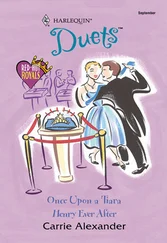Richard Condon - A Trembling Upon Rome
Здесь есть возможность читать онлайн «Richard Condon - A Trembling Upon Rome» весь текст электронной книги совершенно бесплатно (целиком полную версию без сокращений). В некоторых случаях можно слушать аудио, скачать через торрент в формате fb2 и присутствует краткое содержание. Жанр: Триллер, на английском языке. Описание произведения, (предисловие) а так же отзывы посетителей доступны на портале библиотеки ЛибКат.
- Название:A Trembling Upon Rome
- Автор:
- Жанр:
- Год:неизвестен
- ISBN:нет данных
- Рейтинг книги:3 / 5. Голосов: 1
-
Избранное:Добавить в избранное
- Отзывы:
-
Ваша оценка:
- 60
- 1
- 2
- 3
- 4
- 5
A Trembling Upon Rome: краткое содержание, описание и аннотация
Предлагаем к чтению аннотацию, описание, краткое содержание или предисловие (зависит от того, что написал сам автор книги «A Trembling Upon Rome»). Если вы не нашли необходимую информацию о книге — напишите в комментариях, мы постараемся отыскать её.
A Trembling Upon Rome — читать онлайн бесплатно полную книгу (весь текст) целиком
Ниже представлен текст книги, разбитый по страницам. Система сохранения места последней прочитанной страницы, позволяет с удобством читать онлайн бесплатно книгу «A Trembling Upon Rome», без необходимости каждый раз заново искать на чём Вы остановились. Поставьте закладку, и сможете в любой момент перейти на страницу, на которой закончили чтение.
Интервал:
Закладка:
The last man, deservedly so on any list, was Luigi Palo, who did Cossa's (our) dirty work. He carried the title of Cossa's squire. He was a villain who would steal, maim, traduce, procure or kill for Cossa, a specialist humbly offering his specialities. The duke had reasoned that, during the ten years Cossa would study at Bologna, lie would occasionally meet people who would offend him gravely. This being certain, given Cossa's particular character, the duke did not want it to happen that Cossa (or I) take any direct revenge personally – for that could go against Cossa's record in Rome – so Palo was sent along as the surrogate avenger of affronts and to undertake any necessary task that could be potentially damaging to Cossa's honour.'
The age of the members of Cossa's permanent party was, on average ten years older than Cossa, but he was the leader: Dr Weiler was the oldest, Cossa the youngest; Father Fanfarone the stupidest, Cossa the wiliest; Bocca the most garrulous, Cossa the most laconic; Palo thee cruellest, Cossa the most deadly. How would I rate myself against Cossa now that I have graded the others? I was the most serious, Cossa the most devious.
2
We rode into Latium, Fanfarone complaining about his backside all the way, through. Cisterna di Latima to Velletri and Albano to Rome. We rode through a land which had settled into four social divisions just as in Germany: knights and their retainers, who lived in castles or keeps;: merchants, artificers, tradesmen and their dependants, who filled the towns, farmers, who lived in wattled huts under the protection of their lord., spiritual and/or temporal; and the clergy. The world was divided into an uncounted but gigantic mass of Christians and Mahometans with, here and there, pockets of Jews. The knights, merchants and farmers took their places by right of birth and inheritance. The clergy had to work then way up by the devious rules of the Church.
When we reached Rome, I as leader of our party (even if Cossa wasn't aware of that, but his father had put the entire expedition in my charge, sought out the house of Cossa's uncle in the Via Artanis, off the Tiber across from Vatican hill. Rome was a collection of shanties, thieves and vermin. The Black Death had reduced its population by one third, to 17,000. The city was wracked with factional strife among -the Colonna, Orsini, Savelli, Gaetani, Copocci, Stefaneschi and Annabaldi families. As we rode along the river on our first night, on a guided tour of the city by Cossa's Uncle Tomas, we saw wolves wandering near St. Peter's. `If this is Rome,' Cossa said, 'Bologna must be only a clearing in the forest.
`Bologna was a city when Rome was a, village,' his uncle said. `Rome looks like this because: it has lived off the papal interests like a mendicant. The whole population has allowed itself to depend on the hordes of pilgrims and litigants the papacy brings to Rome.'
Tomas Cossa was a one-eyed man who had been a sea captain it the family business, but whom the duke had judged to be too smart to stay at sea, there being plenty of other men to do his job. Tomas was a ruffian who was burned to dark leather by his lifetime in the sun. He had a hanging left eyelid which had frightened many people before he had killed them. His voice was coarsely hoarse from drinking Greek olive oil. He was the Cossas' chief intelligence agent and employed dozens of sub-agents in the seaports of Germany, France, England, Spain and North Africa, to locate and evaluate shipping destined for the Mediterranean. He passed this complex information to the Cossas on Procida. Knowing when and where the Cossa fleet would sail out and plunder these ships. Tomas was probably responsible for my mother's drowning, but he was a Cossa and death meant nothing to him. Baldassare Cossa was the same, throughout his life. He killed at will but he offered his own life as forfeit if he failed; The family trade must have brought all the Cossas to that view.
3
The popes! The cardinals! The bishops! The curia! All because of the Jews and Constantine. Christianity was the religion of a Jewish sect who saw themselves as the true Jews: they thought God had granted them the right to bring the saving work of the people of the Old Covenant to a conclusion because they had found the Messiah. The other Jews merely referred to them as `the Nazarenes'. Questions of agonizing urgency began to bother this sect, but the biggest question was whether Christianity should supplant Jewish orthodoxy or whether it should remain distinct from but closely linked with the Jewish community, its synagogue and its traditions. By the third century Anno Domini, by their counting, they were regarded as a heretical sect by other Jews. These Christians, disowned by the Jewish people, at last, three hundred years after their leader had died, called out to convert the whole of mankind to their Lord's message, in order to survive. Then the whole thing. the entire misunderstanding, was made legitimate by a politicians accident.
It is almost impossible to believe that because Constantine claimed to attribute his cavalry victory at the Milvian bridge to the God of the Christians, who had been nurtured so feebly in Rome by a handful of renegade Jewish fanatics, we must now suffer hundreds of cardinals, thousands of bishops and tens of thousands of indolent priests and monks, in all of the arrogance of their plump wealth; it is almost enough to shatter the spirit. But Constantine, the shrewdest of all the politicians, on the 28 October 312, AD, became the father of institutional Christianity in the crass version by which we now, late in the fourteenth century, know it, by rigorously enforcing its dogmas and-doctrines across the face of Europe -although he himself did not bother to become a Christian until he had fallen into a coma and the eager priests baptized him on his deathbed.
That about sums up Christianity, in my humble opinion. It has changed a great, deal since then, but if they didn't know they had a good thing when they were Jewish, I – mean, as my father told me, why try to improve on the real thing? How could a few centuries, more or less, be expected to accomplish; anything except to make the countless executives of the church worse? Worse they became, believe me.
By the time we made it that far through our lives to get to the Vatican palace, Christianity had become complicated, complex, big business. Bishop Piero Tomacelli, the Cossa family's unofficial representative to the papacy, worked only at night in the new papal palace on Vatican hill, near St Peter's. He was the curia] officer in charge of the administration of the rota romana, preparing cases for appeals to the pope from all over Christendom. His department, the audientia litterarum contradictarum, had maintained diligent files over the centuries. It examined and, ruled on objections and exceptions to appeals.
At midnight on the day after our arrival, Tomas took us to the Vatican palace for a private audience with Bishop Tomacelli, the expensive friend of the Cossa family. Tomacelli was the blandest man I have ever met or seen. He was tall, elegant and handsome; of a noble Neapolitan family, although not of the Cossa family's rank. He was ten years older than Cossa, which made him two years younger than me. `Tomacelli is not over-learned,' the duke had explained to us, `but he is courteous and affable and certainly knows where the money is.' '
The luxury in which the bishop lived impressed us deeply. I could see Cossa shivering with the pleasure of imagining how cardinals must live. Seeing Tomacelli, a young man, covered with jewels and line clothing, surrounded by so many servants in such an opulent setting must have settled the matter of Cossa entering the Church in his own mind. It had never been real to him before. The Church was the place for sandalled dolts such as Father Fanfarone, but this – this was living! I would have to agree with him if living without women was living.
Читать дальшеИнтервал:
Закладка:
Похожие книги на «A Trembling Upon Rome»
Представляем Вашему вниманию похожие книги на «A Trembling Upon Rome» списком для выбора. Мы отобрали схожую по названию и смыслу литературу в надежде предоставить читателям больше вариантов отыскать новые, интересные, ещё непрочитанные произведения.
Обсуждение, отзывы о книге «A Trembling Upon Rome» и просто собственные мнения читателей. Оставьте ваши комментарии, напишите, что Вы думаете о произведении, его смысле или главных героях. Укажите что конкретно понравилось, а что нет, и почему Вы так считаете.












